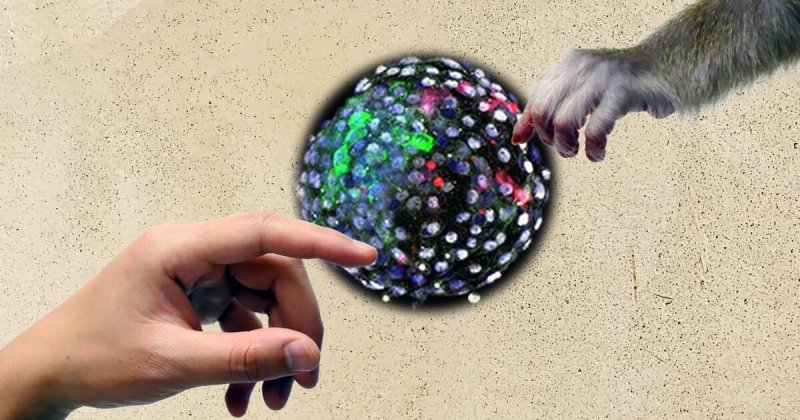Scientists have successfully grown monkey embryos containing human cells for the first time — the latest milestone in a rapidly advancing field that has drawn ethical questions.
In the work, published on 15 April in Cell, the team injected monkey embryos with human stem cells and watched them develop. They observed human and monkey cells divide and grow together in a dish, with at least 3 embryos surviving to 19 days after fertilization.
…
Researchers hope that some human–animal hybrids — known as chimaeras — could provide better models in which to test drugs, and be used to grow human organs for transplants.
But the latest work has divided developmental biologists. Some question the need for such experiments using closely related primates — these animals are not likely to be used as model animals in the way that mice and rodents are. Nonhuman primates are protected by stricter research ethics rules than are rodents, and they worry such work is likely to stoke public opposition.
“There are much more sensible experiments in this area of chimaeras as a source of organs and tissues,” says [developmental biologist] Alfonso Martinez Arias… “There is a whole field of organoids, which can hopefully do away with animal research.”































